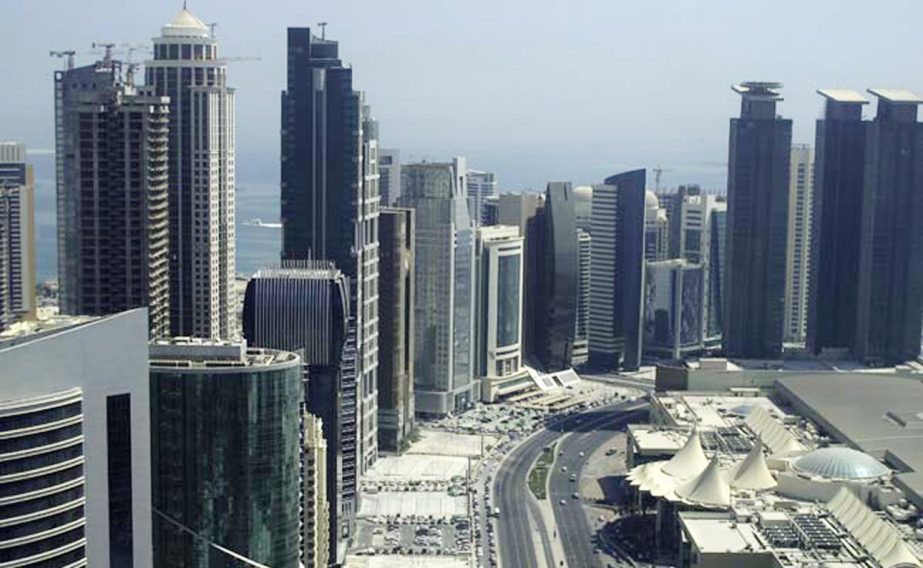
The Washington Post :
The State Department issued an unusual public warning to Saudi Arabia and the United Arab Emirates on Tuesday over a diplomatic rift with fellow U.S. ally Qatar, and suggested that the Saudis may have provoked a crisis and drawn in the United States on false pretenses.
Department spokeswoman Heather Nauert said the administration was “mystified” that – two weeks after announcing a diplomatic and economic embargo against Qatar over alleged support for terrorism – Saudi Arabia and the UAE have not publicly detailed their complaints.
“The more that time goes by, the more doubt is raised about the actions taken by Saudi Arabia and the UAE,” Nauert said.
“At this point, we are left with one simple question: Were the actions really about their concerns about Qatar’s alleged support for terrorism, or were they about the long-simmering grievances between and among the GCC countries?”
All three nations are part of the six-member Gulf Cooperation Council, a loose diplomatic confederation of mostly wealthy Persian Gulf states. Of them, Saudi Arabia is the most powerful
Saudi Arabia, the UAE and Bahrain, along with Egypt, severed diplomatic ties with Qatar this month and blocked trade and passenger traffic through their territory and airspace in protest of what the three said was Qatar’s backing of extremist Islamist organizations, as well as its ties to Iran.
The diplomatic crisis has been a test of the new U.S. administration’s pull with Arab allies, and has pitted President Donald Trump’s public support for the Saudi-led action against Secretary of State Rex Tillerson’s preference for quiet, backroom diplomacy. Tillerson has had more than 20 calls and meetings devoted to helping resolve the crisis, Nauert said, but now sees little further room for U.S. mediation.
But, she said, he wants “results” and is now saying: “Let’s finish this. Let’s get this going.”
The blockade was announced shortly after Trump last month made Saudi Arabia the first stop on his first overseas trip. He received an extravagant welcome and lavished his hosts with praise. He also met with leaders of the UAE and Qatar individually, as well as at a GCC gathering, and signed a unity agreement with them.
Within days after his departure, Saudi Arabia announced the Qatar blockade. Trump tweeted his support. In their conversations with him, he said, the others had “pointed” at Qatar as a source of terrorist financing. He implied that his Riyadh visit had inspired the Saudi-led action.
Tillerson and Defense Secretary Jim Mattis, however, called for mediation and a quick resolution of the dispute. Qatar hosts the regional headquarters of the U.S. Central Command and launches air operations to Syria, Iraq and Afghanistan from a massive base there.
On June 9, Tillerson asked reporters to the State Department to read a prepared statement calling for the blockade to be eased, saying it was causing humanitarian and business hardships, and hindering U.S. military actions against the Islamic State.
The State Department issued an unusual public warning to Saudi Arabia and the United Arab Emirates on Tuesday over a diplomatic rift with fellow U.S. ally Qatar, and suggested that the Saudis may have provoked a crisis and drawn in the United States on false pretenses.
Department spokeswoman Heather Nauert said the administration was “mystified” that – two weeks after announcing a diplomatic and economic embargo against Qatar over alleged support for terrorism – Saudi Arabia and the UAE have not publicly detailed their complaints.
“The more that time goes by, the more doubt is raised about the actions taken by Saudi Arabia and the UAE,” Nauert said.
“At this point, we are left with one simple question: Were the actions really about their concerns about Qatar’s alleged support for terrorism, or were they about the long-simmering grievances between and among the GCC countries?”
All three nations are part of the six-member Gulf Cooperation Council, a loose diplomatic confederation of mostly wealthy Persian Gulf states. Of them, Saudi Arabia is the most powerful
Saudi Arabia, the UAE and Bahrain, along with Egypt, severed diplomatic ties with Qatar this month and blocked trade and passenger traffic through their territory and airspace in protest of what the three said was Qatar’s backing of extremist Islamist organizations, as well as its ties to Iran.
The diplomatic crisis has been a test of the new U.S. administration’s pull with Arab allies, and has pitted President Donald Trump’s public support for the Saudi-led action against Secretary of State Rex Tillerson’s preference for quiet, backroom diplomacy. Tillerson has had more than 20 calls and meetings devoted to helping resolve the crisis, Nauert said, but now sees little further room for U.S. mediation.
But, she said, he wants “results” and is now saying: “Let’s finish this. Let’s get this going.”
The blockade was announced shortly after Trump last month made Saudi Arabia the first stop on his first overseas trip. He received an extravagant welcome and lavished his hosts with praise. He also met with leaders of the UAE and Qatar individually, as well as at a GCC gathering, and signed a unity agreement with them.
Within days after his departure, Saudi Arabia announced the Qatar blockade. Trump tweeted his support. In their conversations with him, he said, the others had “pointed” at Qatar as a source of terrorist financing. He implied that his Riyadh visit had inspired the Saudi-led action.
Tillerson and Defense Secretary Jim Mattis, however, called for mediation and a quick resolution of the dispute. Qatar hosts the regional headquarters of the U.S. Central Command and launches air operations to Syria, Iraq and Afghanistan from a massive base there.
On June 9, Tillerson asked reporters to the State Department to read a prepared statement calling for the blockade to be eased, saying it was causing humanitarian and business hardships, and hindering U.S. military actions against the Islamic State.

